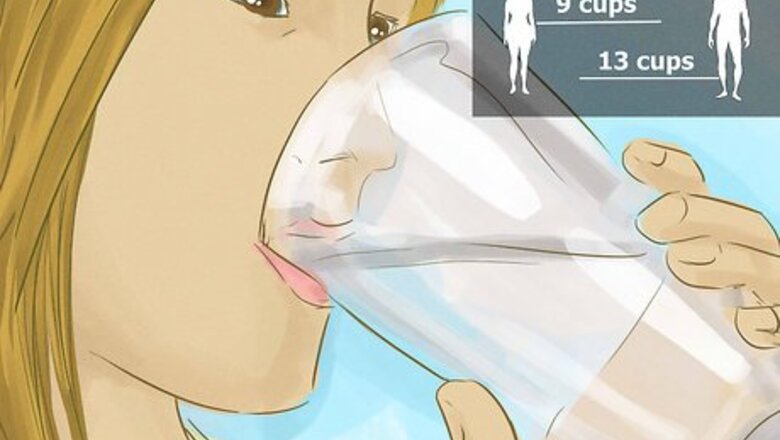
views
Drinking Water to Aid in Permanent Weight Loss
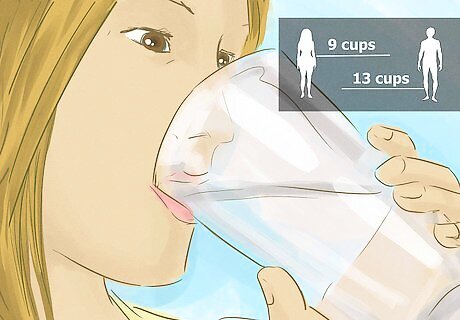
Drink enough water every day to fill yourself up. The Mayo Clinic recommends that adult women drink 9 cups of water per day, and men 13 cups per day. Not only does this keep your body hydrated and healthy — it also prevents your body from confusing thirst with hunger. If you drink enough water to fill up your stomach, you can trick your body the other way, into thinking it’s full of food when it’s really full of zero-calorie water. Remember that these amounts are general guidelines and the amount of water required will vary based on your weight and activity level. Keep a water bottle with you so you can sip on water throughout the day. Know how many ounces of water your bottle holds, and make sure you refill it enough times in a day to reach your water goals. If you’re feeling hungry, drink a glass of water and wait 10 minutes. If you’re still feeling hungry, eat a light snack. You’ll often find, though, that a glass of water can stave off snack cravings.
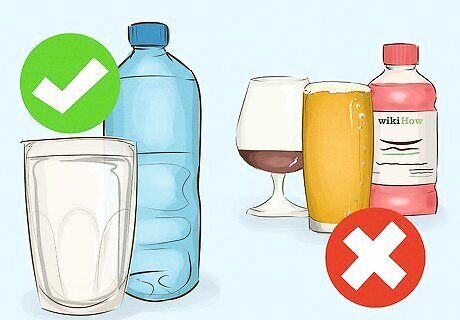
Replace caloric drinks with water. One of the easiest ways to cut large amounts of calories from your diet is to stop drinking your calories. The energy drink you use to get your day started, the soda you drink with lunch, and the beers you grab with friends at the end of the workday — those are all empty calories added on top of the actual food you eat. A couple alcoholic drinks with friends might be an important part of your social life. Just make sure you don’t drink to excess. Have water while you’re drinking, both to keep your body hydrated and to keep you from drinking too many alcoholic calories. Aim for a one-to-one ratio of alcoholic drinks to glasses of water.
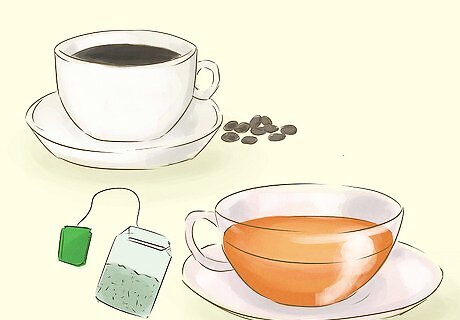
Embrace coffee and tea. If you’re one of the many people who has trouble getting started in the morning, don’t worry! Experts count coffee and tea as part of your daily water intake. If you’ve relied on energy drinks in the past, these unadorned caffeinated drinks are a much better way to wake yourself up. Don’t add calories to these drinks with unnecessary additions. A caramel latte or Frappuccino will be full of added sugar and calories from milk, whipped cream, and flavoring syrups. A plain cup of coffee, on the other hand, has only 2 calories and no fat! Be aware that your body must still metabolize the caffeine, which requires water. Make sure you drink enough water to allow your metabolism to do so.
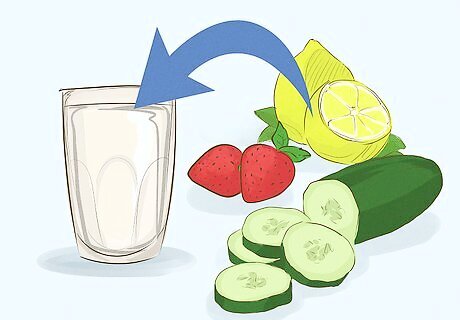
Flavor your water with fruits. If you find yourself missing the flavored drinks you once used to tide you over, you can make your own flavored drinks without the sugar and calories. Slice up your favorite fruits — strawberries, lemons, cucumbers — and soak them in a pitcher of water in your refrigerator. After a few hours, the water will take on the fruit’s flavor, and you’ll have a delicious, low-calorie drink.
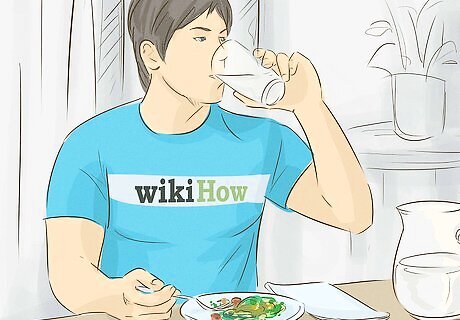
Take sips of water between bites during meals. Water helps you digest meals by ensuring proper kidney function. But taking sips of water in between bites can also stop you from overeating. It can take 12-20 minutes for your body to realize that its hunger has been satisfied, so if you’re eating too fast, you may eat far more than you need to. Fast eaters often find that they feel overly full and sluggish after meals. By sipping on water between every bite, you lengthen the meal and give your brain time to process how full your stomach is.
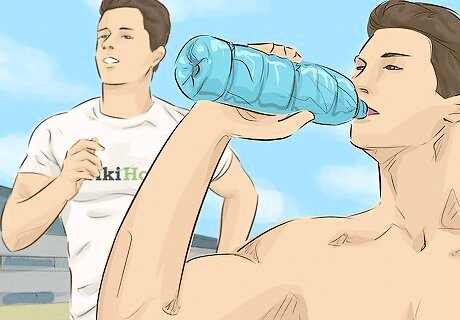
Drink water before and during exercise. Research shows that drinking water can raise your metabolic rate, allowing your body to burn calories at a slightly higher rate than normal. While the metabolic increase isn’t staggering, it is significant, and it’s easy! Researchers estimate that if you increase your daily water intake by about 6 cups per day, you could lose an extra 5 pounds over the course of a year. Make sure you are drinking enough water to replenish what you sweat out during exercise. Failure to to do so may cause dehydration, which leads to a multitude of health risks.
Water Fasting to Lose Temporary Weight Quickly
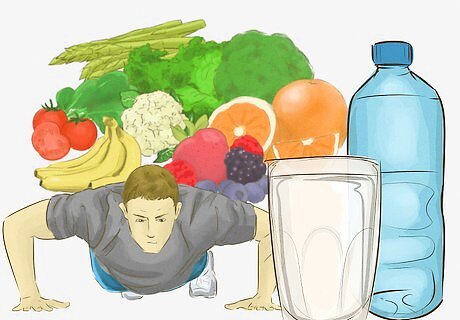
Understand that water fasting does not yield permanent results. A water fast is when a person does not eat or drink anything but water for a set period of time. This obviously results in rapid weight loss because your body is not taking in any calories through food. However, the weight you lose through fasting will come back when you start eating again. In fact, because your metabolism slows down to deal with the lack of energy coming in through food, you may gain back more weight than you lost in the first place when you start eating again. If you’re trying to lose permanent weight, you should drink plenty of water in concert with balanced meals and regular exercise. However, if you need to drop a few pounds for an event, a water fast might be a quick solution for you.
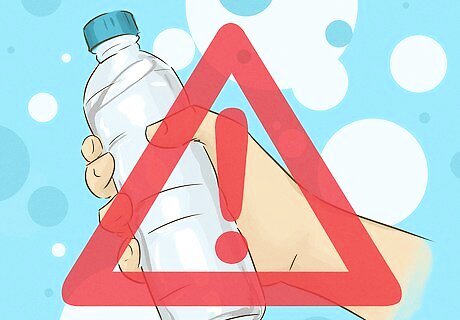
Consider the health limitations of water fasting. The human body is incredibly resilient, and can last a long time without food — so long as it’s not dehydrated. Fasting for a few days is not harmful to most people as long as they drink plenty of water — which you’ll want to do anyway to trick your stomach into thinking you’ve eaten something. However, people with some medical conditions should not fast under any circumstances. Diabetics, for example, need to regulate their blood sugar with food throughout the day. Consult your doctor before beginning a fast. Children, the elderly, pregnant or breastfeeding women, and people with chronic illness should not fast. Even otherwise healthy people will feel negative side effects while fasting. When you stop eating, your body doesn’t have an energy source; as a result, you will feel fatigue and dizziness. You may also feel nausea or suffer from constipation, and, obviously, you will feel very hungry. You may want to consider a clean eating cleanse instead. Focus on eating lean proteins, vegetables, fruit, nuts (i.e. almonds and cashews), and complex carbohydrates like sweet potatoes, brown rice, and quinoa, for at least 48 hours.
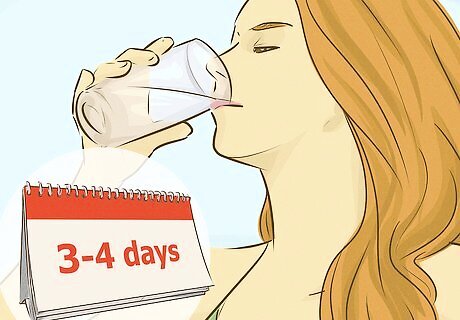
Fast only for a few days. You may see recommendations for 21 or 30-day fasts online, but these are extremely dangerous if not under direct medical supervision. If you choose to fast, do so only for the three or four days before the event for which you’re preparing. Beyond that, you will be so fatigued and dizzy that you may hurt yourself or others just going about your daily life.
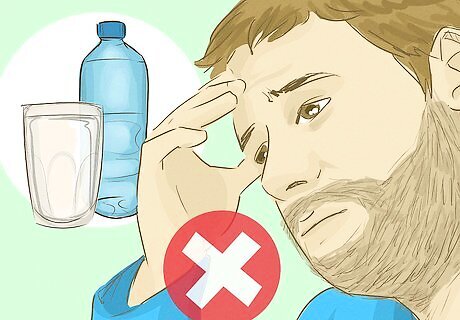
Fast during a stress-free stretch of days. If you have a big deadline coming up at work, or you’re going to be taking a road trip, you shouldn’t fast. The side effects will impede your ability to concentrate, and you’ll end up doing a bad job or being dangerous behind the wheel of a car. Don’t try to exercise while fasting, either, as you have no excess calories to burn off. It will only make you feel terrible! Ideally, you should have a stress-free, low-energy stretch of days during which you can lay about.
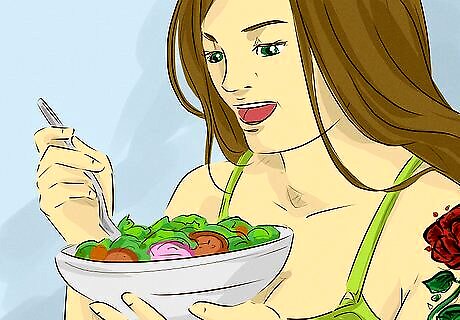
Break your fast before the event you’re preparing for. You want to look great on that day, not nauseous, tired, and dizzy! Don’t rush back into fatty foods immediately, as they can cause digestive problems after a fast. Instead, eat healthy, low-fat foods like fruits and vegetables to get you back on track for your big day.
















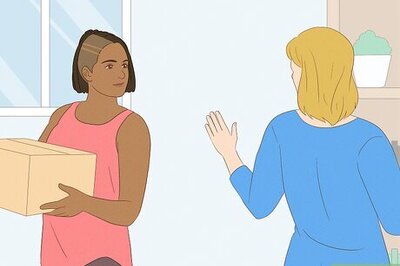



Comments
0 comment